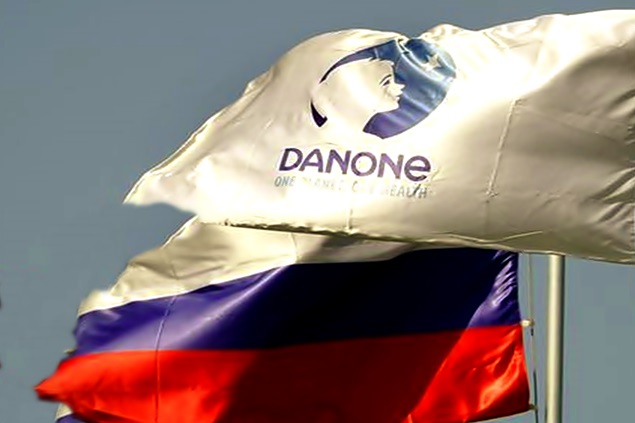1581

Danone SA has informed that Russian authorities have placed the Russian subsidiary of the company under "temporary external administration" - a measure related to the Kremlin's attempt to retaliate against "unfriendly actions" due to economic sanctions, as reported by DairyReporter.
A disguised nationalization
In a statement, Danone said it was informed that Russian authorities intend to place Danone Russia under the temporary external administration of the Federal Agency for State Property Management, a subdivision of the Russian Ministry of Economic Development that administers federal state property in Russia.
"Danone is currently investigating the situation," the company said. "Danone is prepared to take all necessary measures to protect its rights as a shareholder of Danone Russia and the continuity of business operations in the interest of all stakeholders, especially its employees."
Danone was in the process of transferring control of its essential dairy and plant-based products business in Russia, a transaction estimated to result in a loss of 1 billion euros / 1.12 billion dollars.
The process was launched on October 14, 2022, and "is progressing as expected," according to the company. However, in practice, the Russian state's move could mean that Danone's exit from the market could come much earlier.
Why did Russia do this?
Russian authorities have been toying with the idea of introducing legislation that would allow the Kremlin to take control of Russian assets related to "unfriendly foreign states" since the beginning of the war in Ukraine.
But in April 2023, President Vladimir Putin signed Decree No. 302, which allowed federal agencies, such as the one mentioned by Danone, to seize Russian assets owned by enterprises from "unfriendly foreign states" or their Russian divisions.
This includes countries that have sanctioned Russia for its invasion of Ukraine, such as all EU member states, as well as the USA, Canada, Australia, New Zealand, Japan, and South Korea.
Once an asset is confiscated, the federal agency can exercise full control over it, in addition to the right to dispose of it.
Companies from "unfriendly" countries are targeted
The decree specifically targets assets owned or controlled by "unfriendly" states on Russian territory and is seen as retaliation since only President Putin can decide when "temporary external administration" would cease to apply.
According to the decree, Russian authorities can take over assets owned by foreigners based on a wide range of triggers - the so-called prerequisites - such as if there is a perceived threat that assets owned by Russians in an "unfriendly foreign state" could be confiscated or frozen.
There are others too
Danone is not the only company that has seen its Russian assets placed under temporary external management. Baltika Breweries, a company owned by Carlsberg, has also seen its shares transferred to the same federal agency earlier this week, as shown in an executive order published by the Kremlin.
Carlsberg said that the change in Baltika's management was made "without the knowledge or approval" of the group and that it is "unclear" what the implications of this development are for the company's operations based in Russia. Like Danone, Carlsberg was in the process of selling its business in Russia, subject to regulatory approvals.
These news might shed light on the precarious situation faced by Western companies with a presence in Russia.
According to LeaveRussia.org, a project led by the Institute for Economics in Kyiv and Ukrainian IT volunteers, which compiles a database of movements of Western companies with Russian operations, there are at least 29 FMCG companies and 65 food and beverage companies that continue to do business with Russia. These include Nestlé, Unilever, Mondelez, Lactalis, and Savencia.





